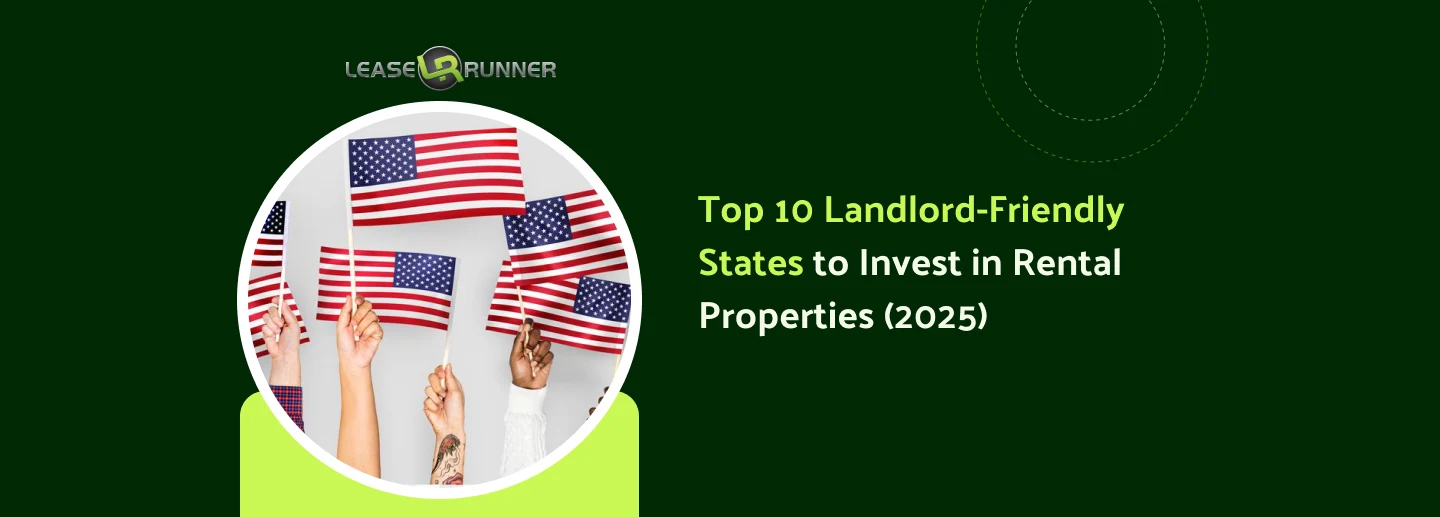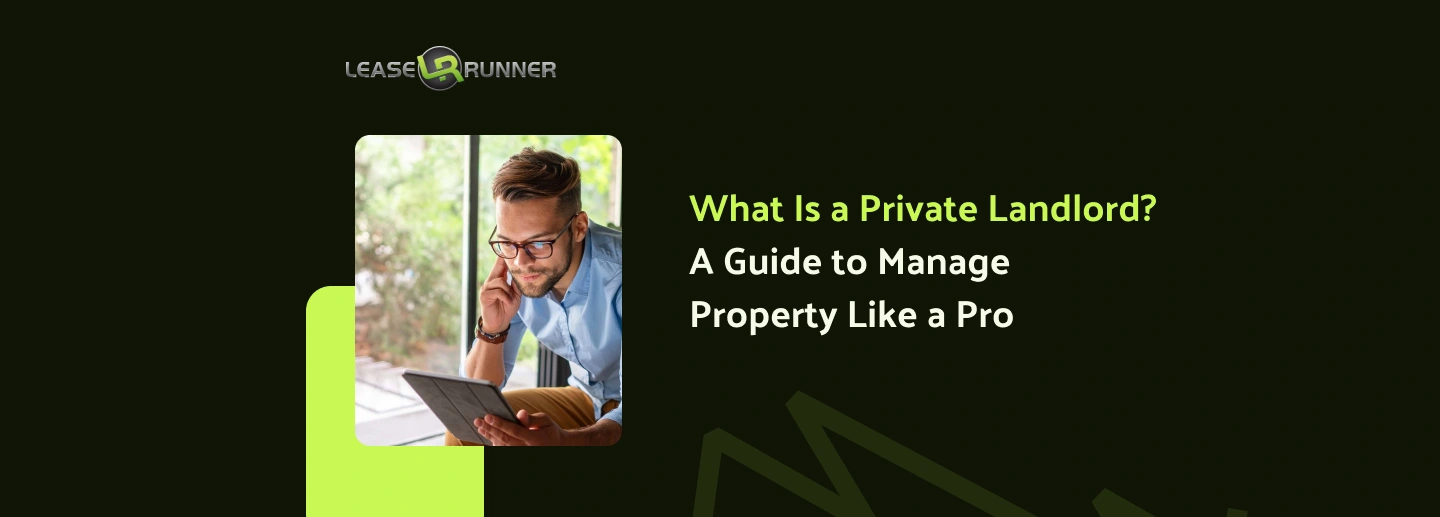
Not every state treats landlords the same. In some areas, strict regulations, high property taxes, and lengthy eviction processes can erode your bottom line. In others, clear rental laws, strong tenant demand, and lower costs make owning rental property far more rewarding. Choosing the right state can be the difference between steady cash flow and constant stress. Below, we take a closer look at the 16 most landlord-friendly states to own rental property in 2025—and why each of them stands out as a smart choice for investors.
What Are Landlord-Friendly States?

Landlord-friendly states are those where rental laws and regulations favor property owners. They typically allow easier eviction processes, minimal or no rent control, flexible rules on security deposits, lower property taxes, and fewer restrictions on lease agreements. While tenant rights still exist, the legal environment gives landlords more control and protection over their rental investments.
These best states to be a landlord typically have:
- Clear legal pathways to remove non-paying or problematic tenants.
- Landlords can set rental prices based on market demand.
- Keeping property management costs lower for investors, allowing for more profit retention.
- More control over collecting and withholding deposits for damages.
Which Factors Make A State Landlord-Friendly?
When deciding where to buy rental property, investors should look beyond purchase price and location. The laws and economic conditions of a state can significantly affect profitability. Here are the main factors that determine whether a state is landlord-friendly:
1. Eviction Laws
Eviction rules vary widely across the U.S. States, with straightforward and timely eviction processes allowing landlords to address nonpayment or lease violations more efficiently. For example, Texas has one of the fastest systems in the country. A landlord can file for eviction after a 3-day notice to vacate, and the process often takes less than 21–30 days. In contrast, New York evictions can take several months due to tenant protections and court backlogs, which increases costs for landlords.
2. Security Deposit Laws
States differ in how much landlords can collect and how quickly deposits must be returned. Arizona, for instance, allows landlords to charge up to 1.5 months’ rent as a security deposit and requires return within 14 days after move-out. Meanwhile, California caps deposits at 2 months’ rent for unfurnished units (3 months for furnished) but requires strict itemized deductions, which can be burdensome for landlords.
3. Property Taxes
Property taxes can make or break the profitability of a rental property. According to the Tax Foundation, the states with the lowest effective property tax rates are Hawaii (0.26%), Alabama (0.36%), and Colorado (0.45%). By comparison, states like New Jersey (2.47%) and Illinois (2.23%) have some of the highest rates in the country, often cutting deeply into rental income.
4. Rent Control
Rent control policies often restrict how much landlords can raise rents annually, which limits income growth. States without rent control or those that allow rent increases tied to market conditions generally provide better opportunities for long-term profitability.
5. Market Demand
Even in states with favorable landlord laws, a weak rental market can reduce returns. For example, Florida saw population growth of over 365,000 new residents in 2023 alone (U.S. Census Bureau), fueling rental demand in cities like Orlando and Tampa. Similarly, Texas continues to grow rapidly, with Austin’s rental occupancy rates averaging above 95%, creating consistent income opportunities for landlords.
6. Other Factors
Beyond laws and taxes, other conditions also matter. These include landlord-tenant court efficiency, insurance costs, availability of affordable investment properties, and whether the state offers favorable financing or landlord incentives. Together, these create a more complete picture of how profitable and manageable it is to own rental property in a given state.
Renter-Friendly Vs Landlord-Friendly States: What's the Difference?
The key difference between landlord-friendly states and renter-friendly states comes down to legal protections and regulatory burdens.
- Landlord-friendly states prioritize property owners’ rights, offering easier eviction processes, less rent control, and fewer restrictions on security deposits.
- Renter-friendly states, on the other hand, have stronger tenant protections, such as strict eviction laws, rent control measures, and extended notice periods for lease terminations.
For real estate investors, choosing the right state can mean the difference between a hassle-free, profitable investment and one bogged down by legal challenges.
Top 16 Landlord-Friendly States for Real Estate Investment in 2025
Investing in rental properties can be highly profitable, but where you invest matters just as much as what you invest in. Let’s find out the top 16 best states to be a landlord in 2025, ranked based on eviction laws, tax benefits, rent control policies, and overall ease of property management.
1. Texas – The Best State to Be a Landlord
When it comes to landlord-friendly states, Texas consistently ranks near the top. The combination of clear rental laws and strong demand makes it one of the most favorable markets for property owners. In cases of nonpayment, landlords can issue a 3-day notice to vacate, allowing them to regain possession faster than in many other states. With rapid population growth in major cities like Austin, Dallas, Houston, and San Antonio, the rental market remains both competitive and highly profitable for investors.
With no state income tax, landlords can maximize their profits. Additionally, Texas has property taxes that average 1.8% compared to other high-growth states, which helps keep costs manageable. For real estate investors, the After-repair value (ARV) of properties in Texas continues to increase, providing excellent opportunities for fix-and-flip investments and higher long-term returns.
2. Florida – A Landlord’s Paradise
Florida is often described as a landlord’s paradise and in reality, Florida is landlord-friendly thanks to its clear eviction process and favorable tax environment. In most cases, removing a tenant for nonpayment takes less than a month, giving landlords more control over their properties. With no state income tax, property owners also enjoy higher net profits compared to investors in states with heavier tax burdens.
In Florida, the property taxes are relatively low, averaging 0.89% of property value, well below the national average.
3. Arizona – Favorable Laws & High Rental ROI
Arizona is widely considered a landlord-friendly state, offering both favorable laws and strong rental potential. With a low property tax rate (0.62%) helps investors keep more of their earnings. Arizona is a great place to invest in both short-term and long-term rentals.
Arizona, particularly Phoenix and Tucson, has become a real estate hot spot. The eviction process is among the fastest in the country, allowing landlords to remove non-paying tenants in as little as 5 days if the tenant doesn’t contest the case.
4. Georgia – Strong Rental Market & Landlord Protections
A frequent question among new investors is: is Georgia landlord friendly when it comes to tenant laws? The short answer is yes. With low property taxes around 0.83% and no rent control, investors maximize cash flow. The cost of entry is relatively low, with plenty of affordable properties that offer high rental yields.
Georgia is one of the most profitable rental markets, especially in Atlanta and the surrounding metro areas. The eviction process in Georgia is extremely fast, often taking just one or two weeks.
5. Michigan – Low Taxes & High Profitability
Michigan is landlord-friendly, particularly for investors focused on cash flow. While property taxes averaging 1.54%, the state offers affordable real estate and strong rental demand, making it an attractive option for long-term profitability. The state allows landlords to start eviction proceedings after serving a 7-day demand for possession in cases of nonpayment.
Detroit and Grand Rapids are particularly attractive for investors due to low property prices and high rental yields. Michigan’s landlord-friendly laws ensure a smooth rental management experience.
6. Colorado – Balanced Market Favoring Landlords
Though Colorado is known for balancing tenant rights, it remains landlord-friendly in practice. The state’s 0.49% average property tax rate keeps ownership costs manageable, while rental demand in Denver, Colorado Springs, and Fort Collins drives strong returns. For nonpayment cases, landlords can issue a 10-day notice to pay or quit, typically regaining control of the unit within one to two months.
Colorado offers a balanced but landlord-friendly market, where eviction process in Colorado are not excessively difficult and landlords retain control over rental pricing. Though Colorado has some tenant protections, the state still favors landlords in key areas, such as security deposit handling and lease enforcement.
7. Indiana – Low Cost, High Rental Returns
Indiana is one of the best states to invest in real estate. Evictions for nonpayment can move quickly, with courts often processing cases within a few weeks after a 10-day notice to quit (Ind. Code § 32-31-1-6). Property taxes are very low, averaging just 0.77% of home value, and home prices remain well below the national median.
Cities like Indianapolis, Fort Wayne, and South Bend are seeing stable rental demand, making Indiana especially attractive for cash flow investors who want steady rental yields with minimal upfront cost.
8. Ohio – Pro-Landlord Laws & Low Cost of Living
Ohio is a landlord-friendly, low-cost investment market with high cash flow potential. The state’s eviction laws strongly favor landlords, allowing for quick removals of non-paying tenants. For nonpayment of rent, tenants may be served a 3-day notice to vacate before eviction proceedings begin, one of the fastest timelines in the Midwest.
Property taxes average 1.43%, but the low home values make total tax burdens manageable. Ohio is a great place for investors who want reliable monthly cash flow without the high costs of larger markets.
9. Alabama – Low Property Taxes & Favorable Laws
Alabama eviction process is among the fastest in the U.S., allowing landlords to remove problematic tenants in under 3 weeks.
Additionally, Alabama has the lowest property taxes in the country at 0.36%, making it ideal for long-term investors who want to minimize expenses. The rental market is strong, particularly in Birmingham, Huntsville, and Mobile, where job growth is driving steady demand for housing.
10. North Carolina – A Balanced Yet Favorable Market
North Carolina offers a balanced market that, while not as aggressively landlord-friendly as Texas or Indiana, still provides strong advantages for property owners. Property taxes average 0.73% and no rent control laws exist, giving landlords freedom to adjust rents in response to market conditions.
The eviction process in North Carolina is relatively efficient, and no rent control laws exist, allowing landlords to maximize their rental income.
11. Nevada – Rapid Growth & Landlord-Friendly Policies
Nevada is highly attractive for landlords thanks to its fast-growing population and favorable rental laws. The eviction process is efficient, requiring only a 7-day pay-or-quit notice for nonpayment of rent, after which landlords can proceed quickly through the courts. The state has no income tax, which increases profitability for investors.
Property taxes are among the lowest in the country, averaging just 0.50%. With strong rental demand in Las Vegas and Reno driven by job and population growth, landlords enjoy both steady occupancy and opportunities for appreciation.
12. Illinois – High Demand in Key Urban Markets
Illinois may not always be considered landlord-friendly overall, but in certain urban markets, the demand and profitability are undeniable. In cases of nonpayment, landlords must provide a 5-day notice to pay or vacate, making the eviction process relatively straightforward.
Property taxes are higher than average, at 2.07%, but the high rental demand in cities like Chicago and Champaign offsets this burden. Strong job markets and a steady influx of renters keep occupancy rates high, making Illinois profitable for landlords who invest strategically in high-demand areas.
13. Missouri – Affordable Housing & Strong Returns
Some states gain attention for big-city growth, while others quietly deliver strong returns. That leads many to wonder: is Missouri a landlord friendly state for investors seeking affordable entry points? The answer is yes - Missouri combines low housing costs with landlord-friendly laws.
For nonpayment of rent, tenants may be served with a 5-day demand for possession, giving landlords quick control over their property. Property taxes average 0.91%, and home prices are well below the national median. Cities like St. Louis, Kansas City, and Springfield continue to see steady rental demand, which means investors can secure high rental yields while keeping acquisition costs low.
14. Kentucky – Low Entry Costs & Favorable Landlord Rights
Kentucky is one of the most affordable states for new landlords to enter the market. Evictions for nonpayment can proceed after a 7-day notice to pay or vacate, giving property owners a clear and efficient process.
Property taxes are low, averaging just 0.83%. Louisville, Lexington, and Bowling Green are among the state’s strongest rental markets, with demand supported by universities and job growth. For landlords, Kentucky’s combination of affordable entry prices and strong tenant demand creates a high-potential investment environment.
15. Tennessee – Growing Rental Demand & Strong ROI
Tennessee has quickly risen as a landlord-friendly state due to its growing population and pro-investor policies. Evictions can move quickly, with landlords serving a 14-day notice to cure or quit before filing in court.
Like Texas and Florida, Tennessee has no state income tax, boosting investor profits. Property taxes are modest, averaging 0.58%. Nashville, Memphis, and Knoxville are seeing strong rental growth thanks to job creation and in-migration. For landlords, Tennessee provides both strong cash flow and appreciation opportunities.
16. Wisconsin – Landlord-Oriented Legal Framework
Wisconsin rounds out the list with a legal system that favors landlords and a stable rental market. For nonpayment of rent, landlords can issue a 5-day notice to pay or vacate, which allows them to act quickly when tenants default.
Property taxes average 1.59%, but the state’s affordable housing market helps keep investment costs reasonable. Cities like Milwaukee and Madison maintain strong rental demand thanks to universities and diversified economies. With clear eviction procedures and steady rental markets, Wisconsin gives landlords confidence and consistent returns.
Read more: 10 Best States with No Property Tax (or Very Low Taxes) for Homebuyers
3 Key Factors to Consider When Choosing a Landlord-Friendly State

Not all top landlord-friendly states are the same. Before investing, landlords should carefully evaluate the key factors that impact profitability and risk.
Eviction Laws & Process Efficiency
In some states, evicting a non-paying tenant can take months, costing landlords thousands in lost rent and legal fees. In others, the process can be resolved in as little as 7-30 days. You should pay attention to this timeline:
- Notice requirements – How much advance notice must landlords give before filing for eviction?
- Court processing time – Some states have fast-track eviction courts, while others suffer from backlogs.
- Tenant defenses & appeals – The more legal options tenants have, the longer (and costlier) evictions become.
Property Taxes & Ownership Costs
Property taxes, maintenance costs, and insurance can greatly impact profitability, so choosing a state with low property taxes and reasonable ownership costs is necessary.
States with low property taxes:
- Alabama: The lowest in the U.S. at just 0.41% of assessed property value.
- Indiana & Texas: Investor-friendly tax rates with no state income tax on rental earnings.
- Arizona & Colorado: Moderate property taxes but strong property appreciation offsets costs.
Remember to compare not just the property tax rates but also insurance costs, HOA fees, and other recurring expenses.
Rental Market Stability & Growth Potential
A state may be landlord-friendly, but if rental demand is weak, your property could sit vacant for months, costing you money. Keep in mind these factors that indicate a strong rental market:
- Job growth – More employment opportunities mean more renters.
- Population trends – Cities with high in-migration have a rising demand for rentals.
- Rental price appreciation – A market with steadily rising rents signals high demand.
- Low vacancy rates – Fewer empty units mean consistent income for landlords.
Bottom Line
Overall, success in the rental market starts with choosing the right landlord-friendly states. With the right mix of eviction efficiency, low property taxes, and a booming rental market, you can boost your investment’s potential.
FAQs
Q1: Is Arizona landlord-friendly?
Yes, Arizona is considered landlord-friendly due to its efficient eviction process, favorable property laws, and lack of rent control. Evictions in Arizona can be completed in as little as 30-60 days. The low property taxes and growing rental demand in cities like Phoenix and Tucson further enhance Arizona’s appeal to investors.
Q2: Is it better to invest in a landlord-friendly state for rental properties?
Definitely! Investing in a landlord-friendly state can reduce your risks and increase profitability. Landlord-friendly states provide legal protections, quick evictions, and favorable market conditions that enable you to manage your rental property efficiently and maximize returns.
Q3: Is Florida landlord-friendly?
Landlords in Florida have the legal right to terminate leases quickly if tenants fail to pay rent or break lease terms. The state’s favorable property laws, such as strong lease enforcement and the ability to charge late fees, make it easier for landlords to manage their investments effectively.







